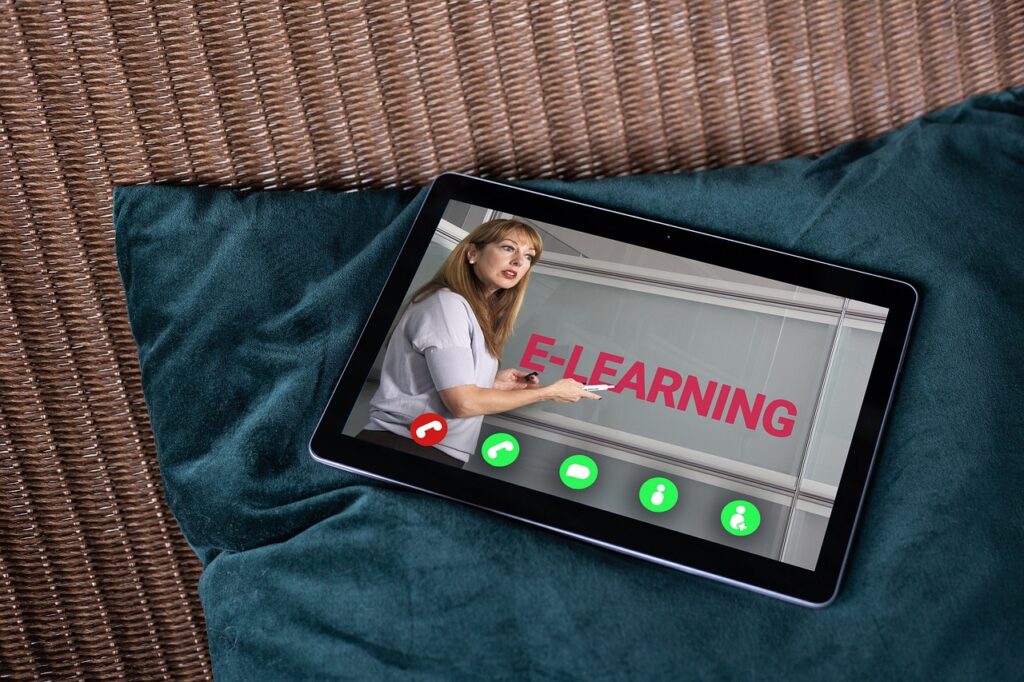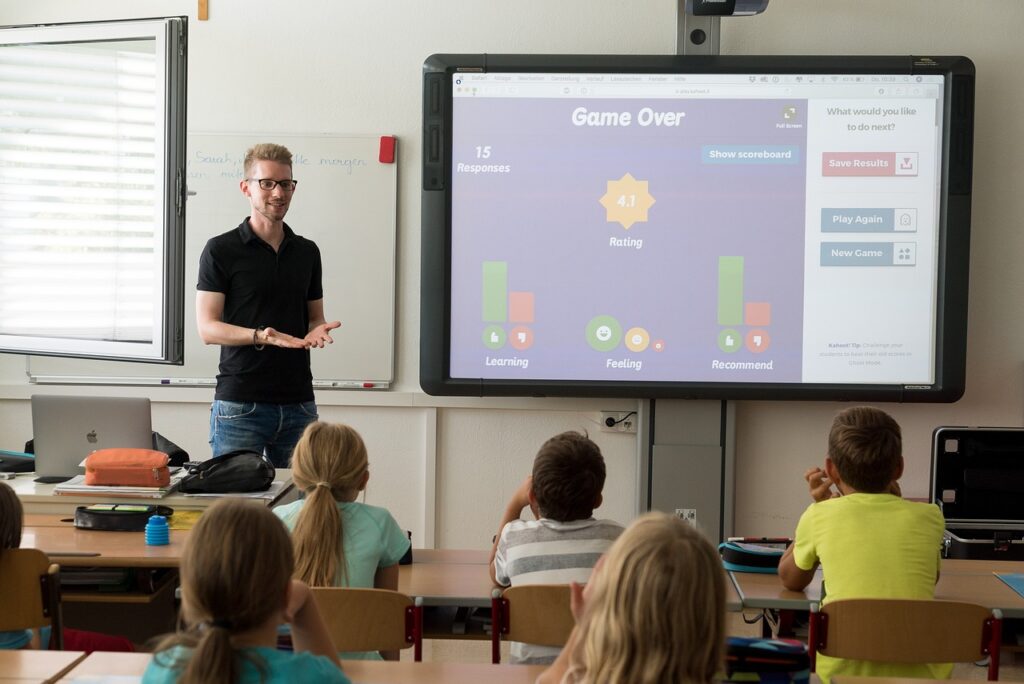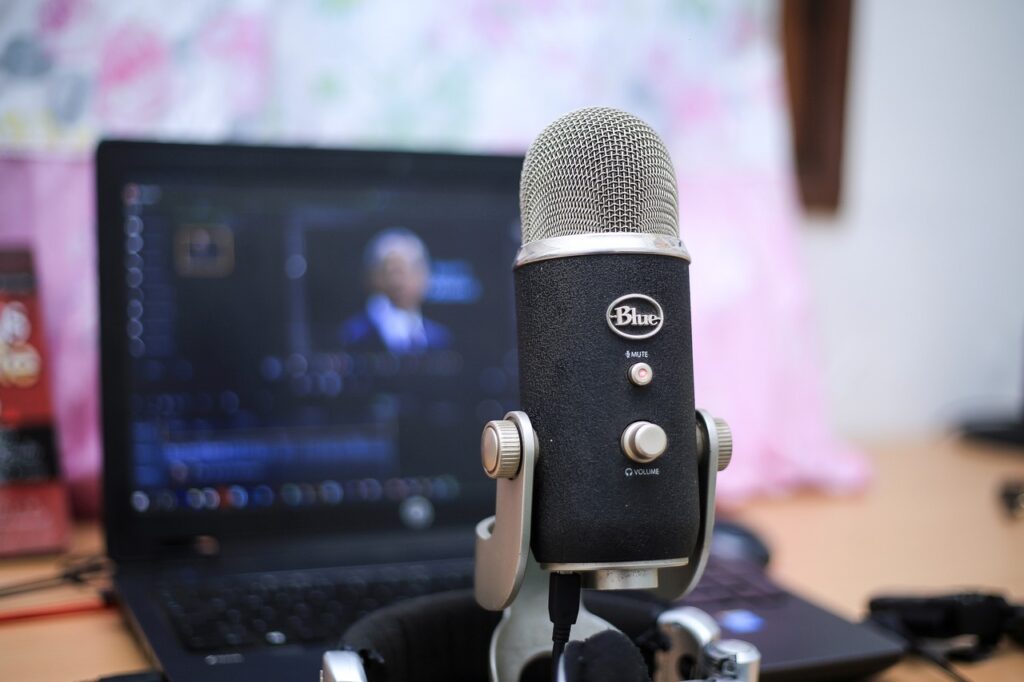
Teachers have a range of excellent resources available to support their professional development and enhance their teaching practices. Here are some of the best educational resources for teachers:
Professional Learning Communities (PLCs)
Best education resources for teachers(PLCs) are collaborative and ongoing learning structures that bring together educators, such as teachers, administrators, and support staff, to enhance their professional development and improve student learning outcomes. PLCs are based on the belief that continuous learning and collaboration among educators are essential for the growth and success of both educators and students.
Key characteristics of Professional Learning Communities include:
Collaboration
PLCs promote a culture of collaboration, where educators work together to share knowledge, experiences, and best practices. They collaborate to develop solutions to challenges and implement effective teaching strategies.
Shared Goals
PLCs focus on common goals and objectives related to improving student achievement. The shared purpose helps align efforts and resources toward specific outcomes.
Data-Driven Decision Making: PLCs use data, such as student performance data and assessments, to inform their instructional decisions. Data analysis helps identify areas of improvement and guides the implementation of targeted interventions.
Reflective Practice: Educators engage in reflective discussions, analyzing their teaching practices and their impact on student learning. This reflective process allows for continuous improvement and professional growth.
Supportive Environment: PLCs create a supportive and non-threatening environment, where educators can share ideas, seek feedback, and receive support from their peers.
. Focus on Learning: The primary focus of PLCs is student learning. Educators work together to develop and implement effective instructional strategies that cater to the diverse needs of their students.
7. Inquiry and Innovation: PLCs encourage educators to explore new teaching approaches, experiment with innovative techniques, and stay abreast of the latest educational research and trends.
8. Time for Collaboration: PLCs require dedicated time for educators to come together regularly, either during common planning periods, staff meetings, or designated professional development sessions.
Benefits of Professional Learning Communities:
1. Improved Teaching Practices: Collaboration and shared learning lead to the adoption of effective instructional strategies, resulting in improved teaching practices and increased student engagement.
2. Enhanced Student Learning: As educators work together to address student needs more effectively, student learning outcomes tend to improve.
3. Professional Growth: PLCs provide opportunities for professional development, allowing educators to expand their knowledge, skills, and expertise.
4. Empowerment and Ownership:-Educators in PLCs have a greater sense of ownership and empowerment in their teaching and decision-making processes.
5. Increased Job Satisfaction:-The supportive and collaborative environment of PLCs can lead to increased job satisfaction among educators.
6. Resource Sharing: PLCs facilitate the sharing of resources, lesson plans, and teaching materials among educators.

Educational Blogs
Best education resources for teachers- education blogs that are specifically geared toward teachers. These blogs cover a wide range of topics, including teaching strategies, classroom management, educational technology, professional development, and more. Please note that the popularity and availability of blogs may change over time, so it’s a good idea to verify their current status. Here are some recommended education blogs for teachers:
1. Edutopia – Edutopia is a well-known education blog funded by the George Lucas Educational Foundation. It focuses on innovative teaching practices, project-based learning, social-emotional learning, and technology integration.
Website: https://www.edutopia.org/
2. Cult of Pedagogy- Created by Jennifer Gonzalez, Cult of Pedagogy offers practical teaching strategies, classroom management tips, technology tools, and a podcast series covering various education topics.
Website: https://www.cultofpedagogy.com/
3. Teach Thought – Teach Thought provides thought-provoking articles, instructional strategies, and education news for educators seeking to improve their teaching methods and engage students effectively.
Website: https://www.teachthought.com/
4. The Cornerstone for Teachers- Angela Watson’s blog, The Cornerstone for Teachers, focuses on time management, classroom organization, and work-life balance for teachers.
Website: https://thecornerstoneforteachers.com/
5. Larry Terrazzo’s Websites of the Day- Larry Terrazzo, an educator and author, curates an extensive collection of resources, lesson plans, and educational tools for teachers.
Website: https://larryferlazzo.edublogs.org/
6. WeAreTeachers – WeAreTeachers covers a wide range of education topics, offering lesson plans, teaching ideas, professional development tips, and relevant educational news.
Website: https://www.weareteachers.com/
7. Teaching Tolerance project of the Southern Poverty Law Center, Teaching Tolerance provides resources for promoting diversity, equity, and inclusion in the classroom.
Website: https://www.tolerance.org/
8. Reading Rockets – Focusing on literacy and reading instruction, Reading Rockets offers valuable resources for teachers looking to improve students’ reading abilities.
Website: https://www.readingrockets.org/
9. TeachHUB – TeachHUB features practical articles, lesson plans, and teaching tools to support teachers in their professional growth.
Website: https://www.teachhub.com/
10. MiddleWeb – MiddleWeb is dedicated to middle school education, offering insights, strategies, and resources for teachers working with this age group.
Website: https://www.middleweb.com/

Teacher Professional Development Platforms
- Best education resources for teachers professional development platforms that offer a wide range of courses, workshops, and resources to support educators’ ongoing learning and growth. Please keep in mind that the availability and popularity of these platforms may have changed since then, so I recommend checking their current status. Here are some notable teacher professional development platforms:
- Coursera for Education: Coursera offers online courses from universities and institutions on various education-related topics, including teaching methods, curriculum development, and educational technology.
- Website: https:www.coursera.org
- edX for Education: Similar to Coursera, edX provides online courses from top universities and organizations, covering topics relevant to teachers, instructional designers, and educational leaders.
- Website: https://www.edx.org/
- TeachBoost: TeachBoost focuses on personalized professional development for educators, providing coaching, observation tools, and data analysis to support teacher growth.
- Website: https://www.teachboost.com/
- BetterLesson: BetterLesson offers personalized coaching and professional development for teachers, with a focus on instructional coaching and lesson planning.
- Website: https://betterlesson.com/
- ASCD: ASCD is a well-known organization that offers professional development resources, webinars, books, and articles on a wide range of educational topics for teachers and school leaders.
- Website: https://www.ascd.org/
- Teaching Channel: Teaching Channel provides a platform where teachers can access videos of effective teaching practices and classroom strategies, as well as participate in online professional development communities.
- Website: https://www.teachingchannel.org/
- Education Week: Education Week’s Teacher section offers news, articles, and webinars covering various education-related topics and trends.
- Website: https://www.edweek.org/teacher
- Edutopia: In addition to its blog, Edutopia also offers video-based professional development resources, covering various teaching and learning topics.
- Website: https://www.edutopia.org/
- ISTE U: Offered by the International Society for Technology in Education (ISTE), ISTE U provides online courses and certifications focused on integrating technology in education.
- Website: https://www.iste.org/
- SimpleK12: SimpleK12 offers on-demand webinars and professional development courses for teachers, with a strong emphasis on technology integration in the classroom.
- Website: https://www.simplek12.com/
- These platforms can be valuable resources for teachers seeking to expand their knowledge, improve their teaching practices, and stay updated on the latest trends in education. Be sure to explore the offerings of each platform to find the ones that align with your professional development goals.

Open Educational Resources (OER)
OER platforms such as OER Commons, Curriki, and CK-12 provide free and openly licensed educational materials, including lesson plans, worksheets, videos, and interactive activities. Teachers can adapt and use these resources to meet the needs of their students.
National and State Education Associations:
- Many countries and states have professional organizations dedicated to education. These associations often provide resources, workshops, conferences, and networking opportunities for teachers. Examples include the National Education Association (NEA) and the American Federation of Teachers (AFT) in the United States.
Teacher Training Programs
- Online platforms like Coursera, edX, and Udemy offer teacher training courses and certifications that cover various aspects of pedagogy, classroom management, assessment, and technology integration.
Educational Conferences and Workshops
- Attending conferences and workshops provides opportunities to learn from experts, discover new teaching strategies, and network with other educators. Many conferences focus on specific subjects, grade levels, or teaching methodologies this is also the best resource for teachers.

Education Podcasts
- Best education resources for teachers There are numerous excellent education podcasts that cover a wide range of topics related to teaching, learning, educational technology, classroom management, and more. Podcast availability may change over time, so I recommend checking their current status and availability on popular podcast platforms such as Apple Podcasts, Spotify, Google Podcasts, or the podcast’s official website. Here are some recommended education podcasts:
- The EdSurge Podcast: This podcast features in-depth conversations with educators, administrators, and edtech experts, discussing the latest trends and innovations in education.
- Website: https://www.edsurge.com/research/guides/edsurge-podcasts
- Cult of Pedagogy:-Hosted by Jennifer Gonzalez, this podcast offers practical advice, teaching strategies, and interviews with educators and experts to support teachers in their professional growth.
- Website: https://www.cultofpedagogy.com/pod/
- The Ed Mylett Show: Though not specifically an education podcast, this motivational podcast features interviews with high-achieving individuals from various fields, offering inspiration and valuable insights for educators as well.
- Website: https://www.edmylett.com/show/
- The Google Teacher Podcast: Focused on educational technology, this podcast provides tips, tricks, and updates related to using Google tools and applications in the classroom.
- Website: https://googleteacherpodcast.com/
- Educational Duct Tape: Host Jake Miller explores various technology tools and strategies, providing practical advice on how to “duct tape” these tools together for effective teaching.
- Website: https://jakemiller.net/eduducttape-podcast/
- The TeachThought Podcast: This podcast covers a wide range of educational topics, including teaching strategies, learning theories, and educational leadership.
- Website: https://teachthought.com/category/podcast/
- The EdSurge On Air Podcast: EdSurge On Air features interviews with educators, entrepreneurs, and thought leaders, discussing trends and developments in education.
- Website: https://www.edsurge.com/research/guides/edsurge-podcasts
- The Creative Classroom with John Spencer: Hosted by educator and author John Spencer, this podcast explores creativity in education, project-based learning, and innovative teaching methods.
- Website: https://www.spencerauthor.com/podcast/
- The Harvard EdCast: Produced by the Harvard Graduate School of Education, this podcast delves into various educational issues, research, and practices.
- Website: https://www.gse.harvard.edu/edcast
- Educators Lead: This podcast focuses on leadership in education, featuring interviews with school leaders and experts on leadership and school administration.
- Website: https://www.educatorslead.com/
- Remember that new podcasts may have emerged since my last update, so I encourage you to explore podcast platforms to discover more recent and relevant education podcasts that align with your interests and professional development needs.

Social Media
- Social media can be a valuable tool for teachers to connect with other educators, share ideas, access professional development resources, and engage with students and parents. However, it’s essential to use social media responsibly and maintain appropriate boundaries when interacting with students. Here are some popular social media platforms that teachers often use for professional purposes:
- Twitter: Twitter is a popular platform for educators to connect, share resources, participate in education-related chats (such as #EdChat), and follow educational thought leaders and organizations. It’s an excellent way to stay updated on the latest trends in education.
- Facebook Groups: There are numerous Facebook groups dedicated to educators, where teachers can join communities of like-minded professionals to share ideas, seek advice, and collaborate on various teaching topics.
- LinkedIn: -LinkedIn is a professional networking platform where educators can connect with colleagues, school administrators, and education-related organizations. It’s a great place to showcase professional achievements and access job opportunities.
- Pinterest: Pinterest is a visual discovery platform that many teachers use to find and share educational resources, lesson plans, and creative teaching ideas.
- Instagram: While Instagram is often associated with personal use, some educators use it to showcase classroom activities, projects, and educational resources. Using a public Instagram profile can also help connect with other educators worldwide.
- YouTube:-Teachers can create their own YouTube channels to share educational videos, tutorials, and lessons. Additionally, YouTube offers a wealth of educational content created by other educators and educational organizations.
- Reddit: Reddit has various education-focused subreddits where teachers can engage in discussions, ask questions, and share their experiences with a global community of educators.
- Voxer: Voxer is a messaging app that allows educators to participate in voice chats and discussions, making it a useful tool for collaborative professional learning.
- When using social media as a teacher, it’s essential to maintain professionalism and adhere to your school’s or district’s social media policy. Avoid sharing any confidential or sensitive information related to students, parents, or colleagues, and be mindful of your online presence. Always prioritize student privacy and safety when interacting on social media platforms.

Local Libraries and Educational Institutions
- Local libraries and educational institutions are valuable resources for teachers, providing access to a wide range of materials and support to enhance their professional development and classroom instruction. Here are some ways teachers can benefit from local libraries and educational institutions:
- Professional Development Workshops: Many local libraries and educational institutions offer workshops, seminars, and training sessions specifically designed for teachers. These sessions can cover various topics, including instructional strategies, technology integration, classroom management, and student assessment.
- Educational Materials and Resources:-Libraries often have extensive collections of educational materials, including books, journals, magazines, and digital resources that teachers can borrow or access for free. These resources can support lesson planning, curriculum development, and research.
- Curriculum Support: Educational institutions, such as curriculum centers or school districts, often provide curriculum support for teachers. They may offer guidance on aligning curriculum with standards, developing lesson plans, and implementing effective instructional practices.
- Access to Technology:-Some libraries and educational institutions may offer access to educational technology tools, software, or equipment that teachers can use to enhance their teaching and create engaging learning experiences for students.
- Collaborative Spaces: Libraries and educational institutions can serve as collaborative spaces for teachers to work together, share ideas, and collaborate on projects or lesson plans.
- Networking Opportunities: Educational institutions often host networking events and conferences where teachers can connect with colleagues, educational leaders, and experts in the field. These opportunities can foster professional growth and learning.
- Research Support: Libraries can provide teachers with research assistance, helping them find relevant academic articles, studies, and other scholarly resources to inform their teaching practices.
- Children’s Literature and Reading Programs: Teachers can find an extensive collection of children’s literature at libraries, which can be used to support literacy development in the classroom. Libraries often offer reading programs and storytimes for children, which can be a valuable resource for teachers working with young students.
- Community Engagement: Libraries and educational institutions may host community events, author visits, or educational programs that teachers can attend to further enrich their teaching.
- Grant and Funding Opportunities: Some educational institutions may offer information and assistance regarding grant and funding opportunities for teachers looking to implement innovative projects or professional development initiatives.
- Teachers should reach out to their local libraries, school districts, universities, or educational organizations to explore the resources, workshops, and services available to support their teaching practice and professional growth. Utilizing these resources can have a positive impact on both teachers’ professional development and their student’s learning experiences.
